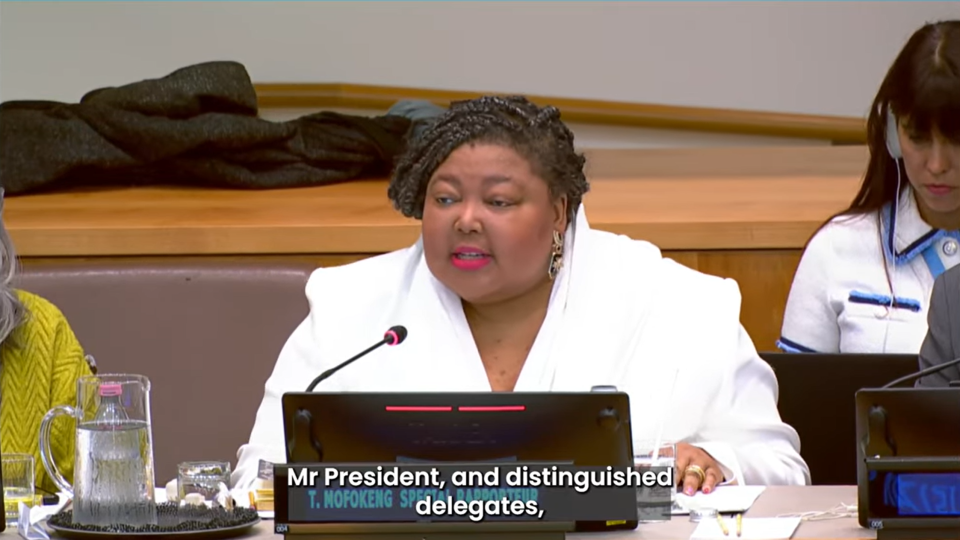UN Special Rapporteur recognizes ICN's impact in major report on health workers as "Defenders of the Right to Health"

The International Council of Nurses (ICN) has been recognized in a major report delivered by the United Nations Special Rapporteur at the UN General Assembly on 22 October 2025. The report is entitled “Health and care workers: the oath takers and defenders of the right to health” and was endorsed by the World Health Organization (WHO). The Special Rapporteur, Dr. Tlaleng Mofokeng, told the UN General Assembly that health workers are “the backbone of health systems, playing a vital role in the realization of the right to health”, and “key to peace, security and sustainable development”, including by delivering vital care to vulnerable populations in conflict and crisis zones, often at great personal risk. At the General Assembly, country representatives responded with strong statements recognizing the critical role of the health workforce and the challenges they face and calling to prioritize and support health workers’ own wellbeing.
ICN’s full submission to the Special Rapporteur can be viewed on the UN Office of the High Commissioner for Human Rights web page here.
‘We especially welcome the Special Rapporteur’s acknowledgement of ICN’s #NursesforPeace campaign, which has supported nurses and communities in crisis zones right the way around the world, including Gaza, Ukraine, Sudan, and many more regions. #NursesforPeace works with our National Nursing Associations in conflict-affected regions to provide much-needed humanitarian resources and to strengthen nursing capacity and leadership. This on the ground initiative is reinforced by our ongoing advocacy for peace, including to the UN Secretary General, and for an end to unacceptable violence and attacks on health workforces.
‘As the Special Rapporteur told the General Assembly last week, nurses and health workers, who are essential to defending human rights in conflict, should never be targets of violence. We must act immediately to end attacks on health workers and facilities and ensure that nurses and other health professionals receive the protections due to them in accordance to international humanitarian law.”
ICN also welcomes the Special Rapporteur’s calls to “strengthen the role of health and care workers in high-level political forums on peace, security and sustainable development”: nurses must be included and involved in decision-making as peacemakers as well as health makers. The report also emphasizes the urgent need for “sustained investment in legal frameworks, social protection, fair remuneration and systemic support to ensure that health workers can continue to act as the defenders of the right to health for everyone, everywhere”. This echoes ICN’s longstanding calls to protect nurses’ physical and mental wellbeing with safe, sustainable working conditions and supports.
The report further highlights that inequitable migration of health workers can exacerbate workforce shortages and notes the need to “promote sustainable recruitment strategies that minimize harm to the countries facing the most severe health and care worker shortages”.
‘As the Special Rapporteur expressed so powerfully, nurses and other health care workers do not only provide health but defend human rights, contribute to stable societies, and advance peace and healing. This is why ICN continues to advocate for strong, sustainable, and supported nursing workforces everywhere and for everyone. We are encouraged that our advocacy has been recognized in this report delivered to the UN General Assembly, which amplifies the influence of nursing.”